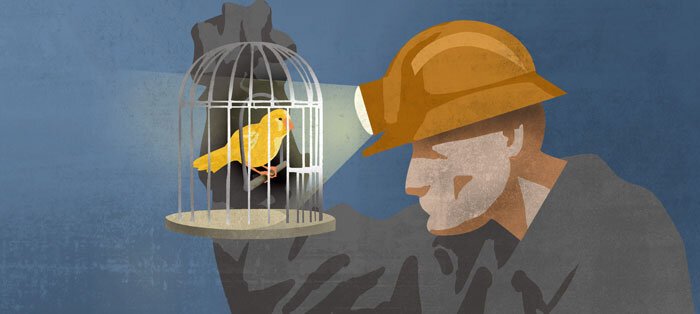Sick Bird Syndrome
By now, everyone on the planet has some awareness, however dim, of our epidemic of lifestyle disease. The list is familiar: obesity, diabetes, heart disease, respiratory illness and depression. We wring our hands about the problem, shake our heads and propose solutions, most of them built around diet and exercise. But it’s not working. Most of our so-called solutions aren’t really very effective but even worse, we’re looking at the problem in the wrong way.
That is, most of us classify the diseased state of the human body as a fixable medical issue. Yes, we’re inclined to say, people are suffering from a host of lifestyle diseases, but these are afflictions of the body, nothing more. They are regrettable, but do not affect the bigger pictures of our lives. All we need is better screening, better medications and better public health campaigns. If we can do these things, all will be well.
In fact, the implications of lifestyle disease go far beyond the physiological dysfunctions of tissue and organs. These diseases are not just of the body, but also of the mind, spirit, society and culture. In fact, the state of our bodies has profound consequences that extend far beyond the individual, into realms of education, business, politics and public policy.
In fact, we would do well to completely re-frame how we look at this situation. That is, it’s time to view our bodies as canaries in the coal mine of the modern world. They tell us that something is tragically wrong with the way we’re living. Our bodies are screaming out, calling us to action. In this sense, we are our own “sentinel species.”
The idea traces back to 1913, when Scottish physiologist John Scott Haldane proposed placing a canary in a mine to detect carbon monoxide. Likewise, cats in Japan are known to develop “dancing cat fever” before humans are affected by eating mercury-contaminated fish. Dogs were recognized as early as 1939 to be more susceptible to tonsil cancer when kept in crowded urban environments. Honey bees are susceptible to air pollution, bats and swallows have been used to monitor pesticide contamination. Likewise, aquatic animals have been used as sentinels to monitor water pollution.
The value of sentinel species lies in the warning that they provide, but our case, we fail to heed the message. Instead of taking care of the situation as a whole, we opt to treat the canary with all manner of prescriptions, substances and programs. We build vast medical industries to improve the welfare of the canary. We put the canary on special diets. We perform bariatric surgery on the canary. We give it counseling and behavior modification programs. We spend billions to develop new medications and gene therapies to treat the canary’s condition.
Meanwhile, the fitness industry is hard at work trying to build a better canary. We help the canary lose weight, build muscle and improve its athletic performance. We display images of slender, muscular canaries on the covers of our magazines and help canaries appear more attractive to one another. If the canary looks good, everyone is happy.
And all the while, we ignore the context. Like delusional coal miners, we obsess over the condition of the canary while ignoring the larger message. That is, the problem lies, not with the canary, but with the world we’re creating. The canary is suffering because it’s trying to adapt to an alien environment. If we fail to address the larger context of the canary’s life, all the medical and fitness interventions in the world will be for naught.
Of course, if our problem was just carbon monoxide, things would be a lot simpler. We’d just neutralize the gas and go back to work. But in our case, the canary is responding to myriad factors that work together to cause its disease. It’s the food, the water, the sedentary living, the isolation and tribal chaos, the chronic stress and above all, the loss of contact with nature. If we take the canary’s warning seriously, as I believe we must, we need to revamp the entire modern world from the ground up.
Obviously, this is a gargantuan task; every individual, profession and organization must play a part. But no matter the details, the process begins by getting our orientation right. If we listen to what the canary tells us, we can begin to move our culture and our environment in a better direction.
So whatever you do, heed the canary.
